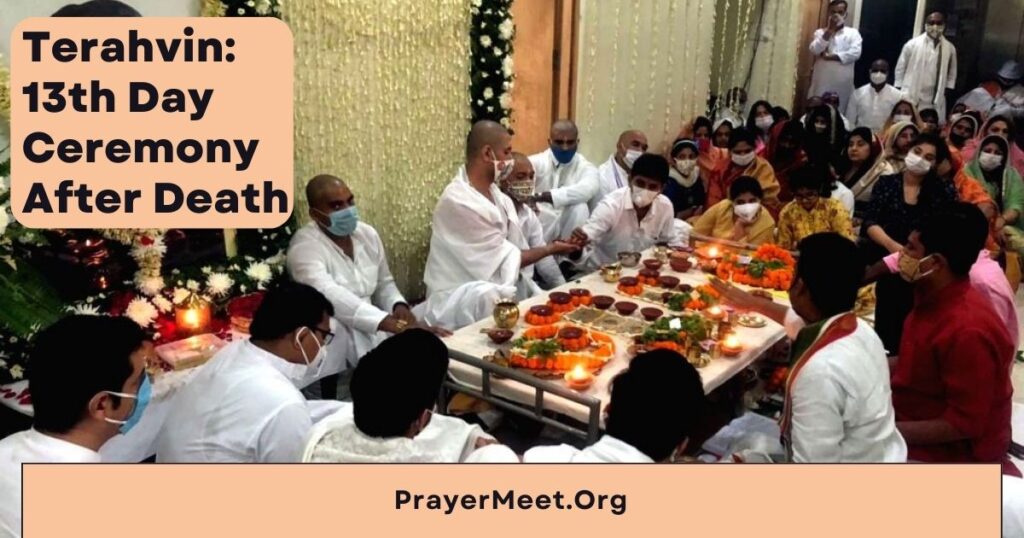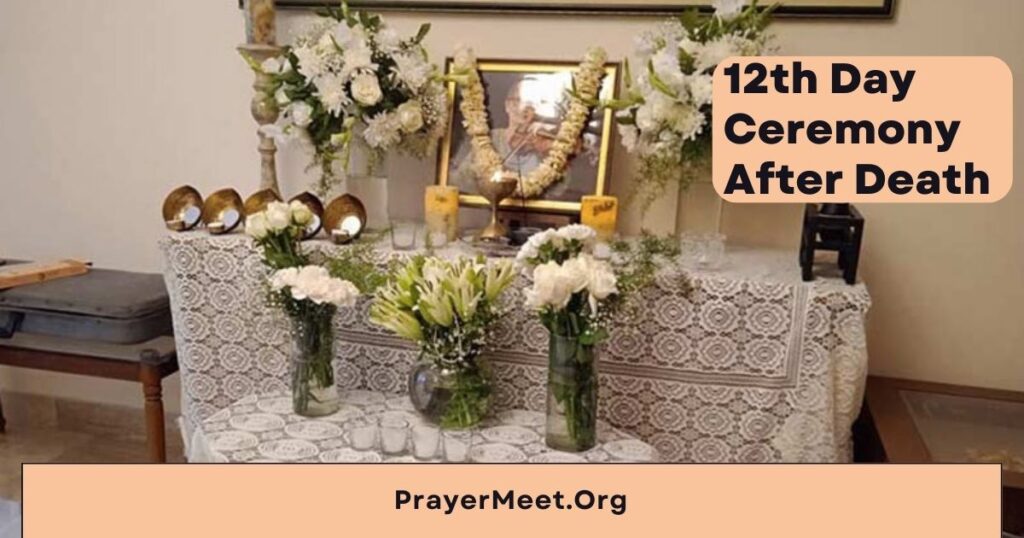As a shradhanjali singer, I have witnessed the grief of losing a loved one so closely. I’ve realised how profoundly losing a loved one can reshape the lives of the family left behind. The emotions that surge within us during such times can be likened to a tempest, tossing our hearts and minds. The initial 16 days following their departure can be exceptionally challenging, leaving us feeling utterly adrift.
Amid grief, we all seek comfort and ways to honour and remember those who have left this earthly realm. That’s why I’ve created this blog—to share my knowledge and lend a helping hand so that you can find peace for your loved one’s soul in their final journey.
16th Day Death Meaning
The 16th day symbolises a pivotal moment in the mourning process. It is a time to honour the departed’s memory and reflect on their impact on our lives. One such profound tradition that resonates across Hindu cultures is the observance of Pitru Paksha. It is a period of mourning that occurs 16 days after the passing of a loved one.
16th-Day Death Purpose and Significance
The 16th-day death ceremony holds great significance in many cultures. It serves as a time for the family and loved ones to come together, offering prayers and rituals to honour the departed soul. This solemn occasion provides an opportunity for closure and healing, allowing us to find comfort in the memories of our loved ones and find the strength to move forward while keeping their spirit alive in our hearts.
16th-Day Death Ceremony
The 16th-day death ceremony is a solemn occasion where family and loved ones gather to honour and remember the departed soul. This ceremony provides an opportunity for healing, closure, and coming together as a community to support one another through the grieving process. It allows us to pay tribute to our loved ones, ensuring their memory lives on and finding solace amid sorrow.
Hindu 16th-Day Death Ceremony Rituals
The Hindu 16th-day death ceremony rituals hold deep significance and reverence. These sacred practices are a way to honour the departed soul and offer prayers for their peaceful transition into the afterlife.
Some of the commonly observed rituals include:
- Tarpan: Offering water to the departed soul symbolises nourishment & purification.
- Pinda Daan: The ritual of offering rice balls or pinda to satisfy the hunger of the deceased and provide spiritual nourishment.
- Havan: Performing a fire ritual to invoke blessings and offer prayers for the peaceful journey of the departed soul.
- Gayatri Mantra recitation: Chanting sacred verses, particularly the Gayatri Mantra, to seek divine blessings and guidance for the departed soul.
- Bhajans and Kirtans: Singing devotional songs and hymns praising deities and seeking solace in their divine grace.
- Reading of Scriptures: Reciting passages from sacred texts, such as the Bhagavad Gita or Ramayana, to find spiritual guidance and upliftment during mourning.
- The Offering of Prayers & Aarti: Offering prayers and performing aarti (ritual of waving a lit lamp) to honour the departed soul and seek blessings for their onward journey.
These rituals remind us of the eternal bonds that connect us to our loved ones even after they have left this physical realm.
16th-Day Death Ceremony Decoration
During the 16th-day death ceremony, decorations gently remind us of the love and respect we hold for our loved ones. Every element chosen carries deep meaning and symbolism, carefully curated to honour the departed soul. Flowers, candles, and incense are often used to adorn the space, symbolising purity, light, and spiritual presence.
How do you invite for the 16th day of the death ceremony?
It is important to surround yourself with a support system that respects your space and understands grief. They want to be there so that you are not alone in your pain. Hence, inviting others to join the 16th-day death ceremony is deeply personal and heartfelt. You can reach out to family, friends, and loved ones with empathy and compassion, extending an invitation to gather and honour the memory of the departed soul. Each invitation carries the intention of creating a supportive community where together, we can find solace, share stories, and offer prayers.
16th-Day Death Ceremony Cost
It’s important to remember that the true essence of this ceremony lies in the love and remembrance we hold for our departed loved one rather than the financial aspects. While expenses may be involved, the intention and heartfelt gestures are most valuable. Thus, there is no fixed amount or limit, as it is a heartfelt gesture of giving our loved ones the best for one last time.
Other Articles to Read:
- Prayer Meet Invitation: Remembering and Paying Tribute
- What Exactly is Life After Death?
- 3rd Day After Death in Hindu Tradition
- 12th Day Ceremony After Death
- Terahvin: The 13th Day Ceremony After Death
- Death 11th Day Ceremony
Throughout my journey as a shradhanjali singer, I’ve borne witness to the undeniable truth of life—loss is a natural part of our shared human existence. Hence, it’s important to know that we’re never alone in this journey. This blog aims to shine a guiding light, offering valuable insights, heartfelt empathy, and a sense of unity during the toughest moments. Together, let’s find comfort and draw strength from our shared experiences.
Charan ji


